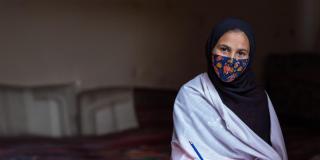
An education is a universal human right, yet refugees like nine-year-old Saad* and 12-year-old Najeeba* are missing out. Having fled the conflict in Afghanistan, they’re now living in Pakistan. Out of school, children are in danger. Every day counts. You can help bring them back into class.
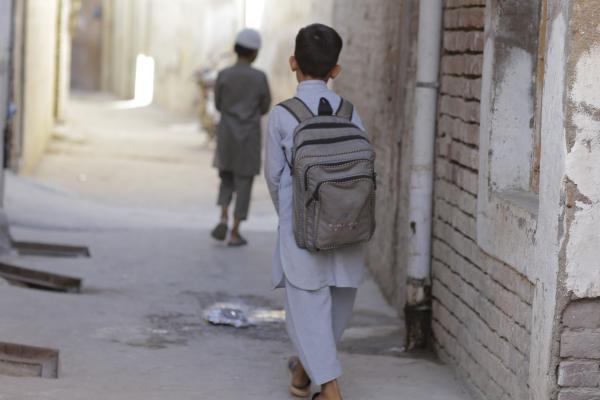
It’s a school day but, on busy streets across Pakistan, you’ll soon see children who aren’t in class. Instead, some are picking up rubbish and collecting scrap to sell. Others are hoping to earn some money polishing shoes.
Working on the streets is dangerous. Children are at risk of violence, abuse and being taken by traffickers. Girls are rarely seen alone but that doesn’t mean they’re safe. Some have to do domestic work to earn money. Girls who don’t attend school are often forced into marriage.
No school. No future
In Pakistan, nearly 23 million children are out of school – that’s the second highest number globally.1
Among them are thousands of Afghan children, who have fled conflict in their home country. An education can’t wait. Every day counts. But Afghan families, who are far from home and do not know how long they’ll be able to remain in Pakistan, can find it impossible to get a school place for their children.
Najeeba's family had to flee
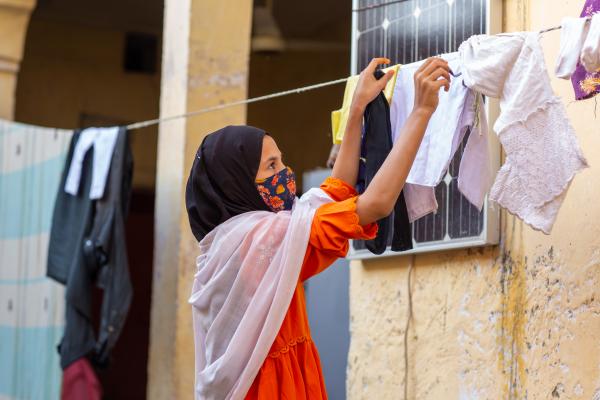
Najeeba’s family was forced to leave Afghanistan when she was six years old. “We faced great difficulty in leaving. I lost a son on the way,” remembers her grandmother, Zakia*. “When we got here, we lived in camps. We all had to fit in one rickety tent.”
The family now has a home, but Najeeba’s father has been unable to secure a job. Her older brother, a labourer at a brick kiln, supports the whole family and they struggle to make ends meet.
Najeeba’s grandmother never went to school, “We couldn’t afford education,” Zakia says, but she wants a better life for her granddaughter. However, at the age of 12, Najeeba wasn’t attending school. Like many refugees, she found her path blocked. Some lack the right documentation, others face language barriers or can’t afford to put a child in school.
Saad was also out of school

Afghanistan’s recent turbulent history has had a huge impact on nine-year-old Saad’s family. Saad was born in Pakistan, but his family have moved back and forth between the countries, most recently leaving Afghanistan when the schools closed.
SaadWithout school, I just sat at home”
Nine-year-old refugee.
But Saad was unable to enrol in school in Pakistan, despite his dad’s hopes for him. “I want to see my children learn and grow as people,” explains Baryal, Saad’s father.
Salma is helping children into an education
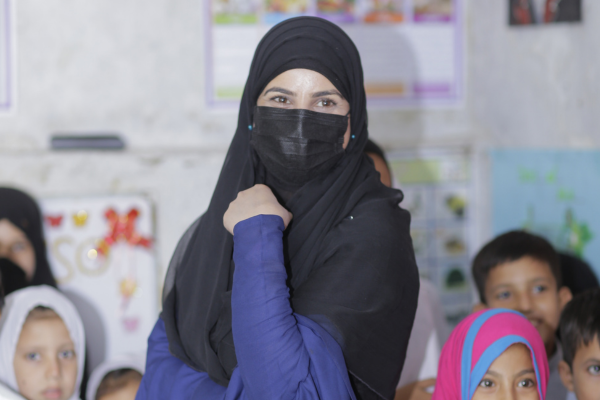
Salma, 26, became a VSO volunteer after seeing children like Najeeba and Saad out of school. An Afghan refugee herself, she was determined to act. She joined VSO volunteers who went out into the community to find children who were out of school. They then spoke to their parents about the value of education. Out-of-school children were invited to attend VSO learning centres, which are set up in unused community spaces, hired rooms, courtyards or volunteers’ homes.
“Government schools can be a long distance from people’s homes and private schools are not affordable,” explains Salma. “I teach in the basement of my home so it is a short walk for the children.”
There are VSO learning centres across north and west Pakistan. Children attend free of charge for up to six months. Having caught up, VSO helps them transfer into local schools.
Inside VSO's learning centres
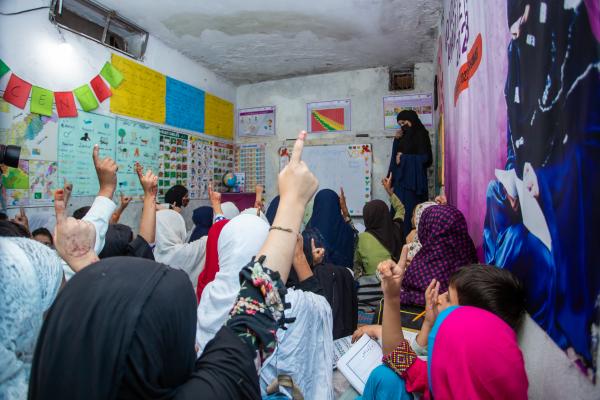
Having trained as a volunteer teacher, Salma welcomes students, including Najeeba and Saad, into the classroom she’s set up, where they learn to read, write and count. Salma has a whiteboard. There are brightly coloured posters on the walls. All the children have big smiles on their faces as they take part in engaging learning activities.
Before attending the VSO learning centre, Najeeba was nervous. “On the first day of school, it seemed daunting,” she says, but she soon built up a circle of friends and enjoyed her classes.
Children learn, dream and find hope for a better future
Najeeba’s time at the VSO learning centre transformed her outlook, just as Salma hoped. She started to see a different future for herself. “I want to become either a doctor or a teacher,” she says. With Salma’s support, Najeeba enrolled in a local school to continue her education after completing the catch-up classes.
Najeeba feels strongly that other Afghan refugee children should get the same opportunities as herself. “When I see other destitute Afghan children on the streets, I want them to enrol with VSO, so that they too can study and find a better future.”
Saad loves learning
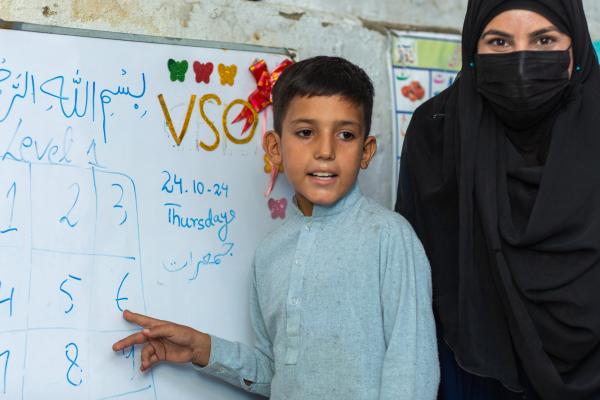
Like Najeeba, Saad has thrived at Salma’s learning centre. He is determined to continue his education, and his parents support him. “Education is extremely valuable,” says Saad’s father, Baryal. “I hope my children become doctors, engineers, and other remarkable people.”
Education is the only way out
For Salma, education has a unique power to transform not only people’s lives, but society. She is particularly passionate about enabling girls to fulfil their potential, and live and work in the way they choose. With each girl who is educated, Salma feels more hopeful for the future.
“If a single woman is educated and provided with basic learning opportunities, then she can educate an entire family.” Salma herself has become a respected figure, known throughout the community as a teacher who is changing children’s lives.
She now dreams of opening an even bigger learning centre. Najeeba’s grandmother, Zakia, who has seen the impact of Salma’s work, says simply, “Education is a beautiful thing.”
Najeeba and Saad are among the fortunate ones, who are back in education. But thousands of other refugee children are still out of school. It’s not right. With your support today, it CAN change.
- UNICEF
*Names have been changed to protect identities.
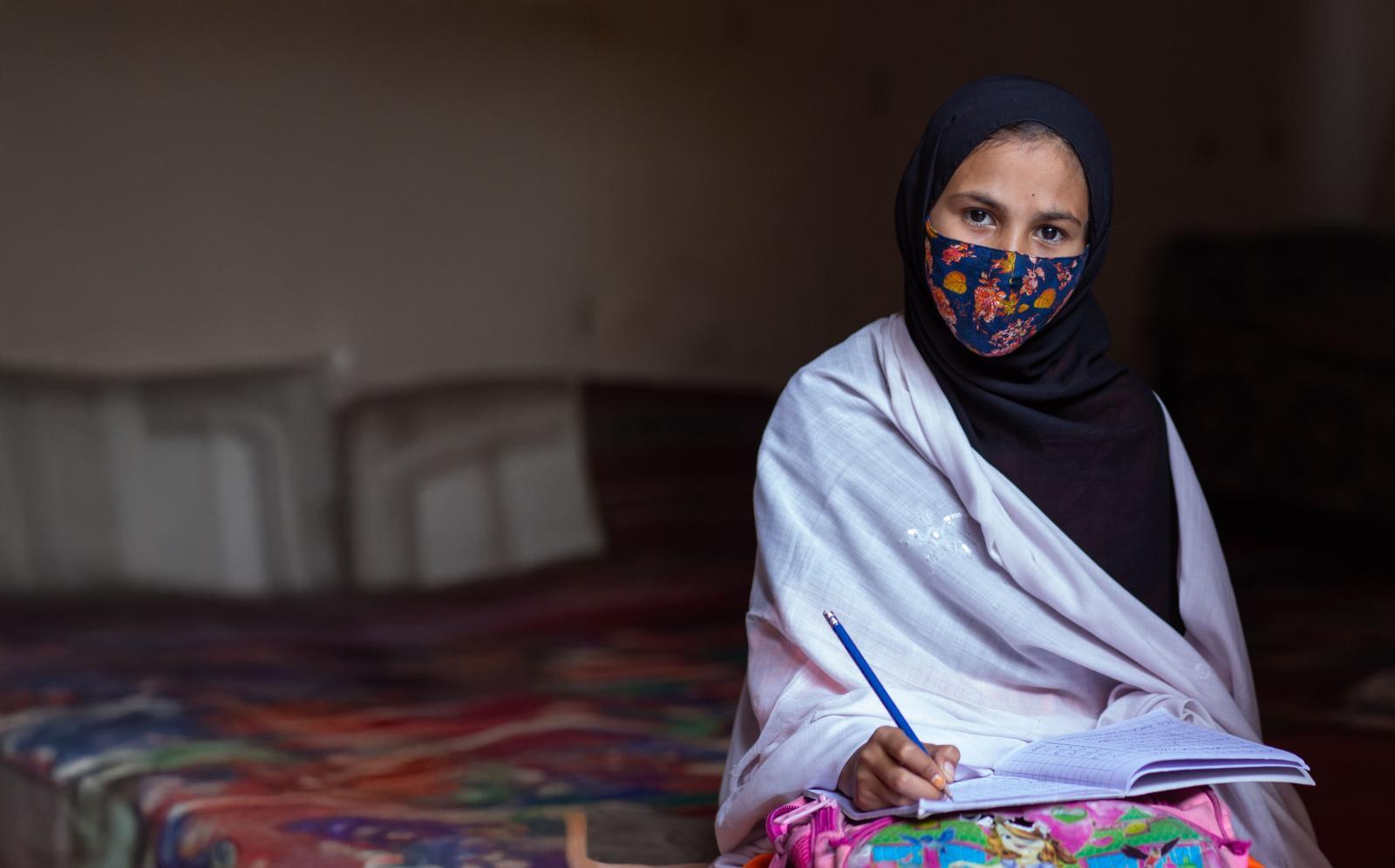
An education can’t wait. Every day counts.
An education is a fundamental human right. But many children – including Afghan refugees in Pakistan – are missing out on learning the skills they need to build a better life.
Please help bring more children like Najeeba* back into the classroom.
Read more
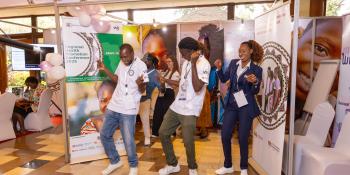
Highlights from the Regional Health Promotion Conference 2025
The Regional Health Promotion Conference 2025 reimagined Universal Health Coverage (UHC) through the lens of intersectionality, by bringing together experts from across East Africa and beyond.
Protecting the biodiversity of the East Tonlé Sap Lake through aquaculture
Aquaculture — the farming of aquatic organisms, such as eels, shellfish, and seaweed, in a controlled environment — is transforming the lives of Cambodian people like Mr Em Phat.
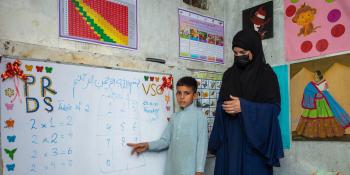
An education can't wait
An education is a universal human right, yet refugees like nine-year-old Saad* and 12-year-old Najeeba* are missing out. Having fled the conflict in Afghanistan, they’re now living in Pakistan. Out-of-school, children are in danger. Every day counts. Help bring them back into class.
